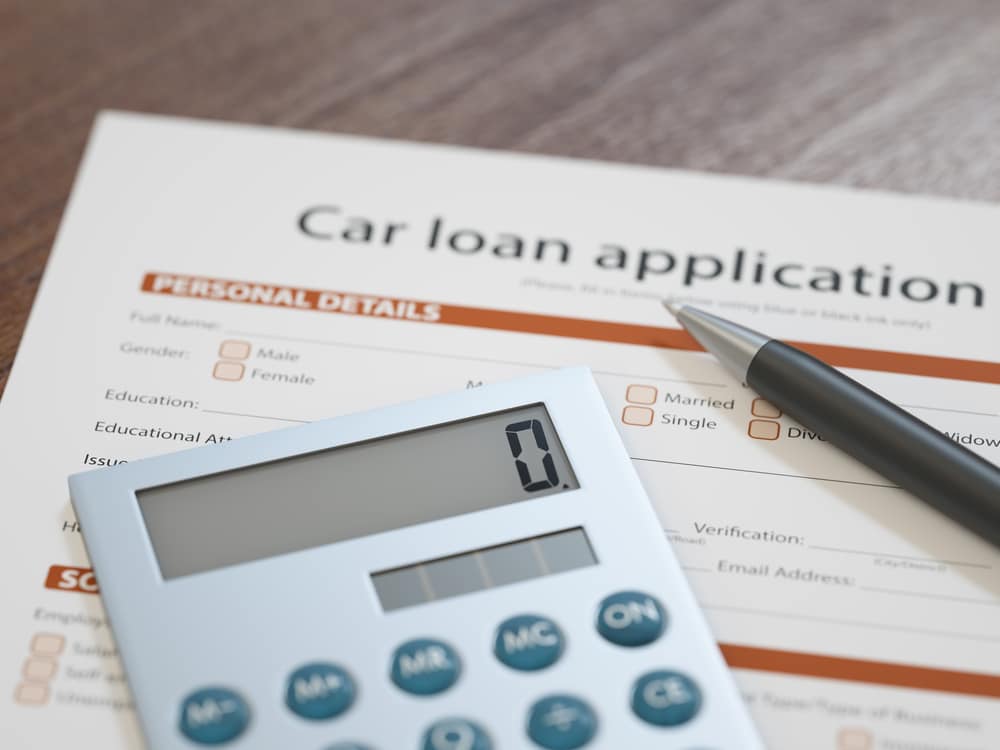The average Australian car loan interest rate on offer through Savvy for someone with a good credit score is 7.43% p.a., as of June 2025. This is based on a five-year, $35,000 loan for a new car and an applicant with full-time employment. For this prime borrowing profile, rates can vary from as little as 5.49% p.a. up to 9.95% p.a. with our lending partners.
For applicants with bad credit, the average interest rate available on a car loan through Savvy is currently 17.02% p.a. This is based on the same parameters as the previous example, with the only difference being credit score. In many cases, bad credit customers may be required to pay 20.00% p.a. to 25.00% p.a. on their car loans. However, if you have a strong profile otherwise, such as being asset-backed with minor non-finance defaults, you might be able to secure a rate closer to 10.00% p.a.
As you can tell, car loan interest rates are determined by a range of factors, such as your income, employment, credit history, the car you’re buying, whether you own a home and much more. This means that the rate you receive may end up being higher or lower than the rates listed above.
What is a car loan comparison rate?
A car loan comparison rate is a figure that incorporates both your interest rate and the fees added as part of your loan agreement. This can include unconditional charges like establishment and monthly repayment fees, but not conditional fees like late or early payments (as they may not be charged).
When comparing your car loan options, it’s essential to look past the advertised interest rate. Comparison rates provide a more accurate reflection of the cost of loans and how much you’ll pay for your vehicle overall. When you apply for your car loan with Savvy, your consultant will let you know what your indicative interest and comparison rates are before you proceed with your application.
Why apply for a car loan with Savvy?
100% online application
There’s no messy paperwork with us. When you apply, you’re able to submit and sign all your forms online.
4.9-star customer service
The satisfaction our customers feel is clear when you see our impressive 4.9-star service rating on Feefo.
Helping Aussies since 2010
We’ve been helping Australians just like you find their ideal car loan package for 15 years and counting.
No credit score impact
Our consultants will conduct a soft credit check when assessing your application, so your score won’t be affected.
40+ lending partners
We’re partnered with over 40 car loan providers nationwide, giving you more high-quality options to consider.
Competitive interest rates
We scour our lending panel for the lowest rates and match you with the most affordable deal available for your profile.
Why does my credit score affect my car loan interest rate?
The reason your interest rate is impacted by your credit score is because lenders use them to assess your trustworthiness as a borrower. A good score indicates a smooth history of repaying other debts and bills, with payments made on time and in full. Because you’re seen as a lower risk to lend to, lenders will generally reward you with lower rates.
On the other hand, if you’ve struggled with paying on time or have unpaid defaults on past debts, your credit score will be negatively affected. Lenders may see things like these as red flags and will increase your interest rate to compensate for the increased risk.
How much interest will I pay on my car loan?
The amount of interest you pay will depend not only on your rate but factors like the size of your loan and length of your term. For example, using a $35,000 car loan to be repaid at 7.43% p.a. over five years, the total interest you’d pay would be $7,010. However, by reducing that interest rate to 7.00% p.a., you’d only pay $6,583 in interest.
The exact formula used to calculate interest on your loan is a bit complicated, but is as follows:
Monthly repayment = Loan amount x ((r (1 + r) n) ÷ ((1 + r) n – 1))
In this equation, r is the annual interest rate divided by 12 and n is the total number of payments made. For example, if you’re calculating interest on a five-year loan repaid monthly, n would be 60. If you don’t want to mess around with hardcore maths, though, you can use our simple repayment calculator:
Car Loan Repayment Calculator
Your estimated repayments
$98.62
| Total interest paid: | Total amount to pay: |
| $1233.43 | $5,143.99 |
What our customers say about their finance experience



Savvy is rated 4.9 for customer satisfaction by 4642 customers.
How to get a better interest rate on your car loan
-
Improve your credit score
Make timely payments on your existing debts, reduce outstanding balances and avoid opening new credit accounts to boost your creditworthiness. By monitoring and improving your credit score, you can increase your chances of qualifying for a lower interest rate.
-
Put down a deposit
Deposits aren’t required on car loans in many cases, but putting one down reduces the amount you need to borrow, which can result in a lower interest rate.
-
Buy a new or near-new car
Newer cars might qualify for slightly lower interest rates due to slower depreciation and warranty coverage, reducing lender risk.
-
Avoid job and major life changes
In the leadup to your car loan applications, having several job changes or multiple adjustments to your living address can negatively impact your chances of approval, especially for a low rate.
-
Shop around
Compare interest rates and loan terms from various lenders. Don't settle for the first offer you receive; instead, explore multiple options to find the most competitive rate. When you apply with Savvy, we do the comparisons for you from our panel of trusted lending partners.
Is the lowest interest rate always the best?
No – as discussed, interest rates don’t always tell the full story when it comes to the cost of your loan. Here’s an example of when a lower interest rate would still be more expensive:
| Car loan | Loan amount | Loan term | Interest rate | Establishment fee | Monthly fees | Monthly repayment | Total repaid |
|---|---|---|---|---|---|---|---|
| Loan #1 | $50,000 | 5 years | 7.50% p.a. | $400 | $10 | $1,020 | $61,195 |
| Loan #2 | $50,000 | 5 years | 8.00% p.a. | $0 | $0 | $1,014 | $60,829 |
| Rates and fees are used for illustrative purposes only. These aren’t necessarily reflective of the rates and fees you may receive on your car loan. | |||||||
Aside from this, though, a low-rate loan may not be suitable for you simply because it doesn’t offer you the flexible features you’re after. Although not super common on car loans, some lenders offer the ability to make free extra repayments and clear your debt ahead of schedule without penalty. A slightly higher interest rate might be worthwhile if the loan offers the flexibility to save money in other ways.

